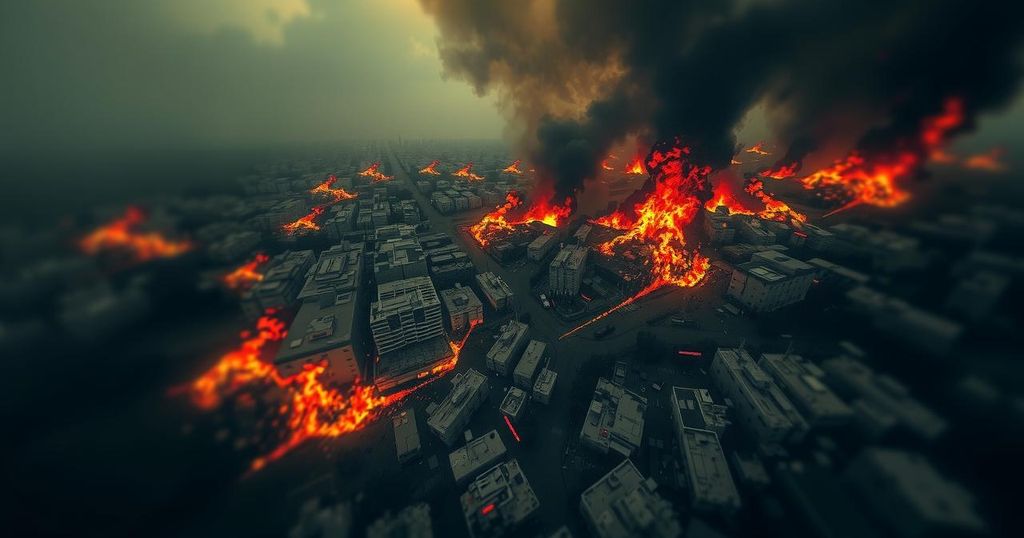Iran views the Hezbollah-Israel ceasefire, effective from November 27, 2023, as a strategic pause beneficial to its interests. While Israel seeks to redirect focus towards Iranian threats, Iran hopes to prevent Hezbollah’s degradation. The ceasefire allows Iran to regroup politically and has implications for U.S.-Iran relations amidst changing administrations. Ultimately, underlying tensions remain high, even with the respite provided by the ceasefire.
Iran’s perspective on the recent Hezbollah-Israel ceasefire is characterized by cautious optimism, despite criticisms of the agreement’s bias towards Israel. Brokered by the United States and France, this fragile ceasefire began on November 27, 2023, and mandates a withdrawal of Israeli forces from southern Lebanon by January 25, 2025. While Prime Minister Benjamin Netanyahu asserts that Israeli operations against Hezbollah have significantly weakened the group, right-wing factions within his government label the ceasefire a grave error, arguing it compromises Israeli security in the region.
Tehran appears to view the ceasefire positively, as it could prevent further degradation of Hezbollah—an ally crucial for Iran’s strategic deterrence in the Middle East. According to Dr. Sina Azodi, an academic at George Washington University, Iran likely pressured Hezbollah to accept the truce to avoid its destruction, which would adversely affect Iranian security. Continuing conflict would risk exposing Iran’s vulnerabilities and the effectiveness of its resistance strategy.
The ceasefire also affords Iran a necessary pause to refocus on other pressing issues, including its nuclear negotiations and regional security challenges, particularly in Syria. Analysts note that sustaining the ceasefire presents an opportunity for Iran to redirect military and political resources while avoiding direct confrontation with Israel, a scenario Tehran is eager to prevent.
Given Hezbollah’s active role against Israeli forces and its previous aggressive posture concerning the Gaza conflict, the agreement could be perceived as a strategic setback for the group, particularly as Israel has returned to negotiations while inflicting significant losses on Hezbollah’s leadership and arsenal. Meanwhile, Iran continues to frame the ceasefire as a symbol of its broader strategic influence and commitment to its allies.
With the imminent return of Donald Trump to the U.S presidency, Iran faces an uncertain future regarding its regional strategy and its relations with Hezbollah. The expiration of the ceasefire shortly after Trump’s inauguration presents challenges that may intensify tensions between Iran and Israel. Tehran will likely advocate for maintaining the ceasefire to avert renewed hostilities that could coincide with potential U.S. policy shifts. Diplomatically, Iran has expressed a willingness to engage with the incoming administration, viewing the current ceasefire as a critical component of its strategy to navigate the complex geopolitical landscape ahead.
Ultimately, while the ceasefire offers temporary respite, both Iran and Israel remain on high alert, with the potential for renewed conflict looming should the geopolitical dynamics evolve unfavorably for either party.
The recent ceasefire between Hezbollah and Israel, which commenced on November 27, 2023, and is set to last until January 25, 2025, has been facilitated by the United States and France, seeking to stabilize the volatile region. Iran, a key ally of Hezbollah, perceives the ceasefire as an opportunity to prevent further damage to its support structure in Lebanon. The ceasefire imposes conditions for Israeli troop withdrawal and Hezbollah’s repositioning, aimed at enhancing regional security while enabling Iran to refocus on its pressing challenges in global diplomacy and internal stability.
In summary, Iran’s reaction to the Hezbollah-Israel ceasefire is predominantly favorable, as it shields Hezbollah from further losses that could undermine Iran’s strategic interests in the region. While providing a temporary pause in hostilities, the ceasefire does not eliminate underlying tensions nor the potential for renewed conflict, particularly in light of anticipated shifts in U.S. policy with the return of Donald Trump to the presidency. Iran is navigating these complexities while signaling a willingness to engage in dialogue with the new American administration, strategically prioritizing the preservation of the ceasefire.
Original Source: www.newarab.com







